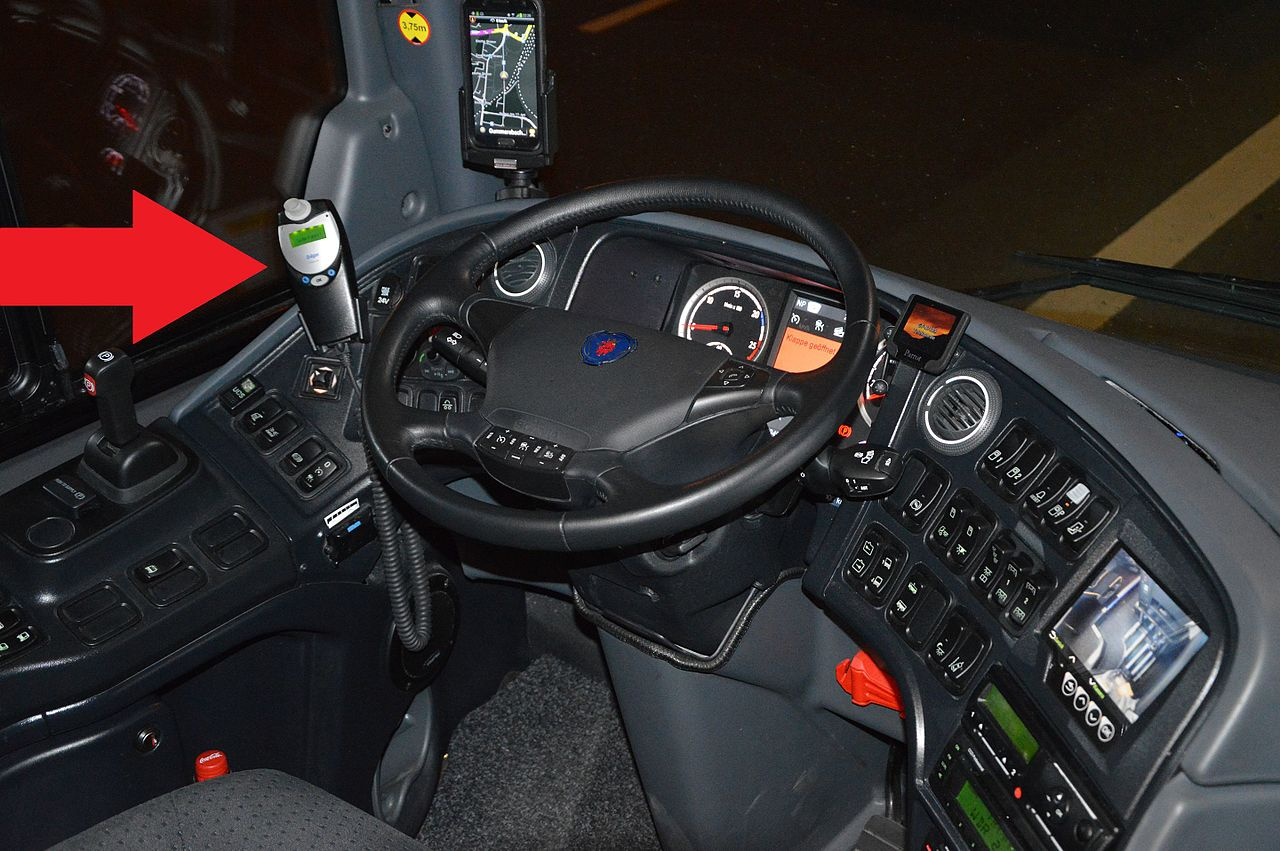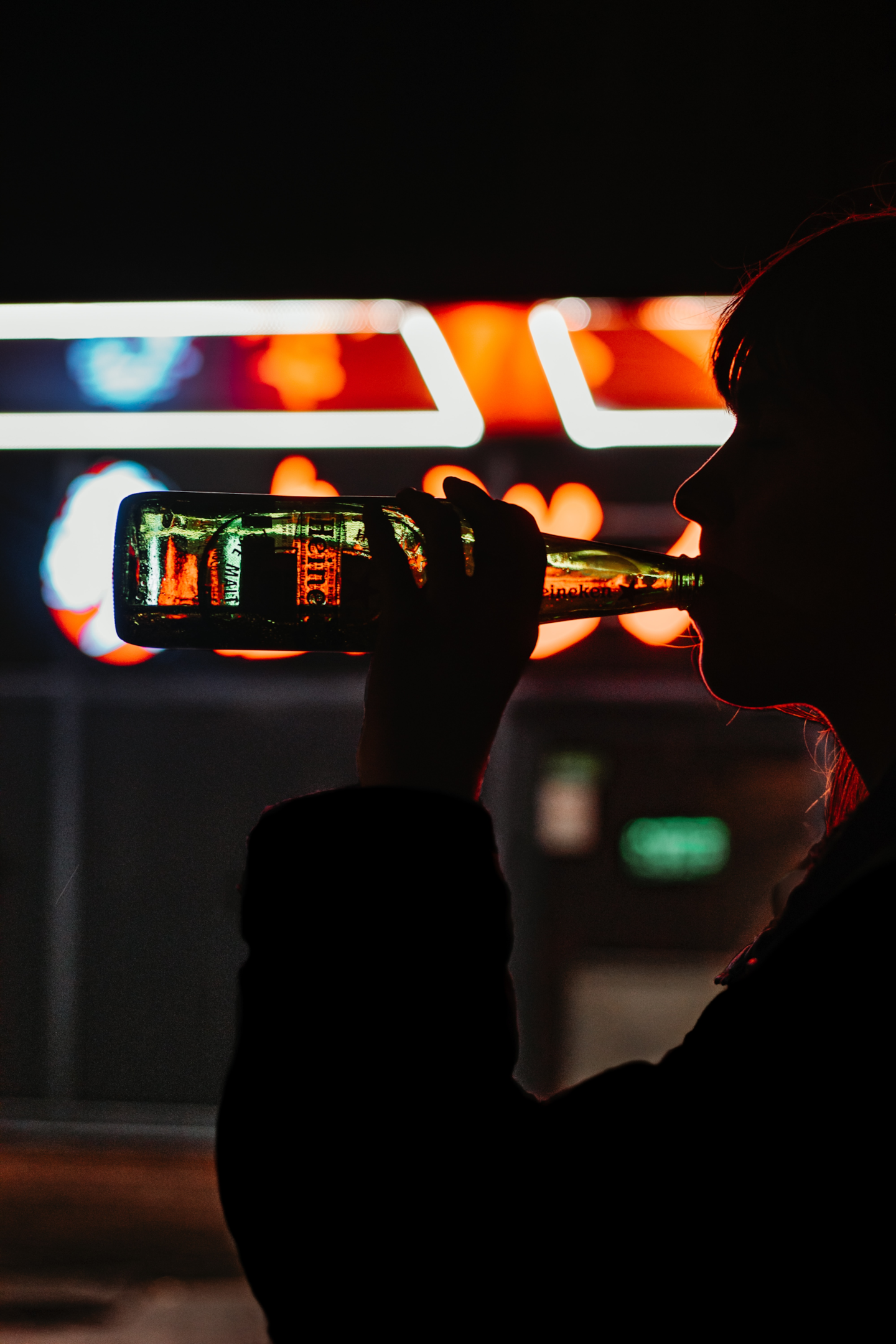Will I need to Install an Ignition Interlock Device in My Vehicle?
If you have been arrested for a DWI offense in Texas, you may be wondering if you will need to install an ignition interlock device (sometimes referred to as a car breathalyzer) in your vehicle. It can be a costly and burdensome condition, and it might be required in your case, but it is NOT required for all DWIs. In some cases, you are required to have an ignition interlock restriction put on your driver’s license. It’s best to seek the advice of a criminal defense lawyer before ignition interlocks are installed. If you have questions, you can fill out a contact form to schedule a free consultation with DWI attorney Rob Chesnutt.What is an Ignition Interlock Device (IID) ?
An Ignition Interlock Device (IID) is a car breathalyzer installed in a vehicle’s ignition system that prevents it from starting if it detects a certain level of alcohol in the driver’s breath. It is about the size of a can of soda. The driver is required to blow a breath sample into the device before starting the car and periodically while driving. If the ignition interlock detects alcohol above the set limit, the motor vehicle will not start. Note that the amount of alcohol detected does NOT need to be above the legal limit to prevent the car from starting. If you blow breath samples with even a small amount of alcohol, it can count as a violation. This device serves as a preventive measure, discouraging drunk driving and promoting safety on the roads.
Reasons You will Need an Ignition Interlock Device
There are several reasons you may need an ignition interlock system in your motor vehicle after being charged with a DWI in Texas. If a car breathalyzer is required, you must sign an agreement that you will not drive any vehicle that does not have an interlock device installed. Sometimes, special exceptions can be made for work vehicles, but usually, your criminal defense attorney will need to help you with this.1. Bond Condition
In some instances, Texas courts may require the installation of a car breathalyzers as a condition of drivers’ bond. This typically happens when the court believes that a person accused of DWI or DUI poses a significant risk of reoffending while awaiting trial. The judge may order an interlock installed in the accused’s vehicle to ensure public safety.2. Probation Condition
Another common reason for requiring an IID is as part of the probation conditions following convictions of DWI. If convicted and sentenced to probation, a Texas court may require you to install an ignition interlock device in your vehicle for the duration of your probation period. In some cases, this condition is required by statute and the law requires an ignition interlock restriction on your drivers license. Other times, it is part of a plea agreement or court order even though it is not strictly required by Texas laws.3. Voluntary Install for Plea Agreement
In some cases, drivers charged with DWI in Texas may voluntarily choose to install an Ignition Interlock Device as part of a plea bargain agreement. By showing a proactive commitment to ensuring their sobriety while driving, a defendant may be able to secure a more favorable plea deal, potentially including reduced charges or penalties. However, this step should be taken under the guidance of a knowledgeable criminal defense attorney.How Long will I Need to Keep the IID Installed?
The duration for which an interlock must be installed varies depending on the specific circumstances of the case. For example, if you were ordered to install an IID as a condition of bond, it may only need to be in your vehicle while awaiting trial. Your DWI lawyer may be able to have the ignition interlock device removed early if you go for a time with no violations. However, if it was required as part of your probation conditions or voluntary plea agreement, it may need to remain in your vehicleHow do I get an Ignition Interlock Device installed?
If you are required to install an IID, the court will provide you with a list of approved vendors that offer installation services. It is important to note that you must use an approved vendor in order for the device to be legally valid. The driver will need to take the motor vehicle to the vendor’s location for installation and regular maintenance checks. The cost of installing and maintaining the device will be your responsibility.
Ignition Interlock FAQs
How much does an ignition interlock cost?
The cost of an ignition interlock device (IID) varies depending on several factors, including the manufacturer, the specific features of the device, and the length of time you are required to have it installed. Typically, you can expect to pay between $70 and $150 for installation, with a monthly rental fee ranging from $60 to $80. There may also be additional costs for routine maintenance and calibration checks.What if I don’t have a car?
If you don’t own a car but are required to install an IID as part of your DWI penalties, you will need to consult with your attorney to understand how this applies to your case. In some instances, Texas law may require the driver to install the device on any vehicle you drive, whether you own it or not. It’s also possible your DWI penalties may include restrictions on your driving privileges until you can demonstrate compliance with the IID requirement. You may be required to keep other devices such as PAM or SCRAM (discussed below). Typically, these alternatives are not recommended if you can help it.What is IID Calibration?
An IID requires calibration as a regular maintenance process to ensure that the device is accurately measuring your breath alcohol concentration and to download the results of previous tests. During calibration, the device is tested and adjusted as needed to ensure it measures alcohol levels correctly. This process is usually carried out by the installation vendor at regular intervals – typically every 30 to 60 days. It’s crucial to keep up with these maintenance checks as failing to do so can result in penalties.PAM and SCRAM as Alternatives to IID
Positive Alcohol Monitoring (PAM) and Secure Continuous Remote Alcohol Monitoring (SCRAM) systems are alternatives to ignition interlock devices (IID). A person may be required to obtain one of these devices if an ignition interlock is not suitable for some reason.Positive Alcohol Monitoring (PAM)
PAM is a portable breathalyzer device that tests for the presence of alcohol. It requires the user to blow a breath sample test on a set schedule. PAM is a non-invasive method of monitoring and can be a suitable alternative for individuals who do not own a car but are still required to demonstrate sobriety. However, because the device requires a blow test on a set schedule, it can be difficult to maintain without getting violations for missing a test even when you don’t fail any.Secure Continuous Remote Alcohol Monitoring (SCRAM)
SCRAM is another type of continuous alcohol-monitoring device that is worn on the ankle. It is equipped with transdermal sensor technology to measure alcohol concentration in sweat. Similar to PAM, the SCRAM device performs tests periodically throughout the day and reports any alcohol consumption to the relevant monitoring agency. While these alternatives do not prevent an individual from starting a vehicle while intoxicated, they provide continuous monitoring of a person’s alcohol levels, which can act as a deterrent and promote responsible behavior.
Contact a DWI Lawyer for a Free Consultation
A DWI can be relatively minor in the scheme of things, but can still burden your life with a DMV license suspension, ignition interlock, and many other inconveniences. If you or a loved one has been arrested for a DWI offense and need to speak with an experienced criminal defense attorney, fill out a contact form to schedule a free consultation. DWI lawyer Rob Chesnutt can answer all your questions in a free 30 minute phone call.
Questions? We Can Help
DWI Defense
Understanding Criminal Mischief in Texas
July 24, 2024Understanding the Laws and Penalties of Criminal Mischief Texas The word “mischief” sounds almost whimsical. You might think it is usually associated with kids being kids, and is mostly harmless. However, in Texas, criminal mischief is still charged. It is...
What is a Motion to Adjudicate Guilt?
July 7, 2024Understanding the Consequences of a Motion to Adjudicate Guilt If you are facing a motion to adjudicate guilt, you’re probably very anxious about the outcome. The prosecutor has already decided that you have violated the terms of your deferred adjudication...
Understanding the Legal Definition of Domestic Assault
July 2, 2024What Is Domestic Assault: Understanding the Definition and Consequences In Texas, domestic violence can be charged as a misdemeanor or a felony. These charges are unfortunately very common, but they should always be taken very seriously, whether at the misdemeanor...
DWI Information for Texas
June 24, 2024A Guide to DWI Information Texas: Penalties, Laws, and More If you’re facing a DWI case in Texas, especially if it is for a first DWI offense, you may be scouring the internet for information. This blog has some of...
Understanding Aggravated Assault
June 22, 2024Understanding Agg Assault: What You Need to Know Aggravated Assault is a very serious charge because it elevates a crime from a misdemeanor to a felony. Felony aggravated assault is treated much differently than its misdemeanor counterpart. While misdemeanor assault...
Understanding UUMV Charges in Texas
June 18, 2024Understanding the UUMV Charge: Texas Penal Code Explained Unauthorized use of a vehicle in Texas is often charged when law enforcement believes a vehicle to be stolen, but there is not sufficient evidence to prove all the elements of theft....

